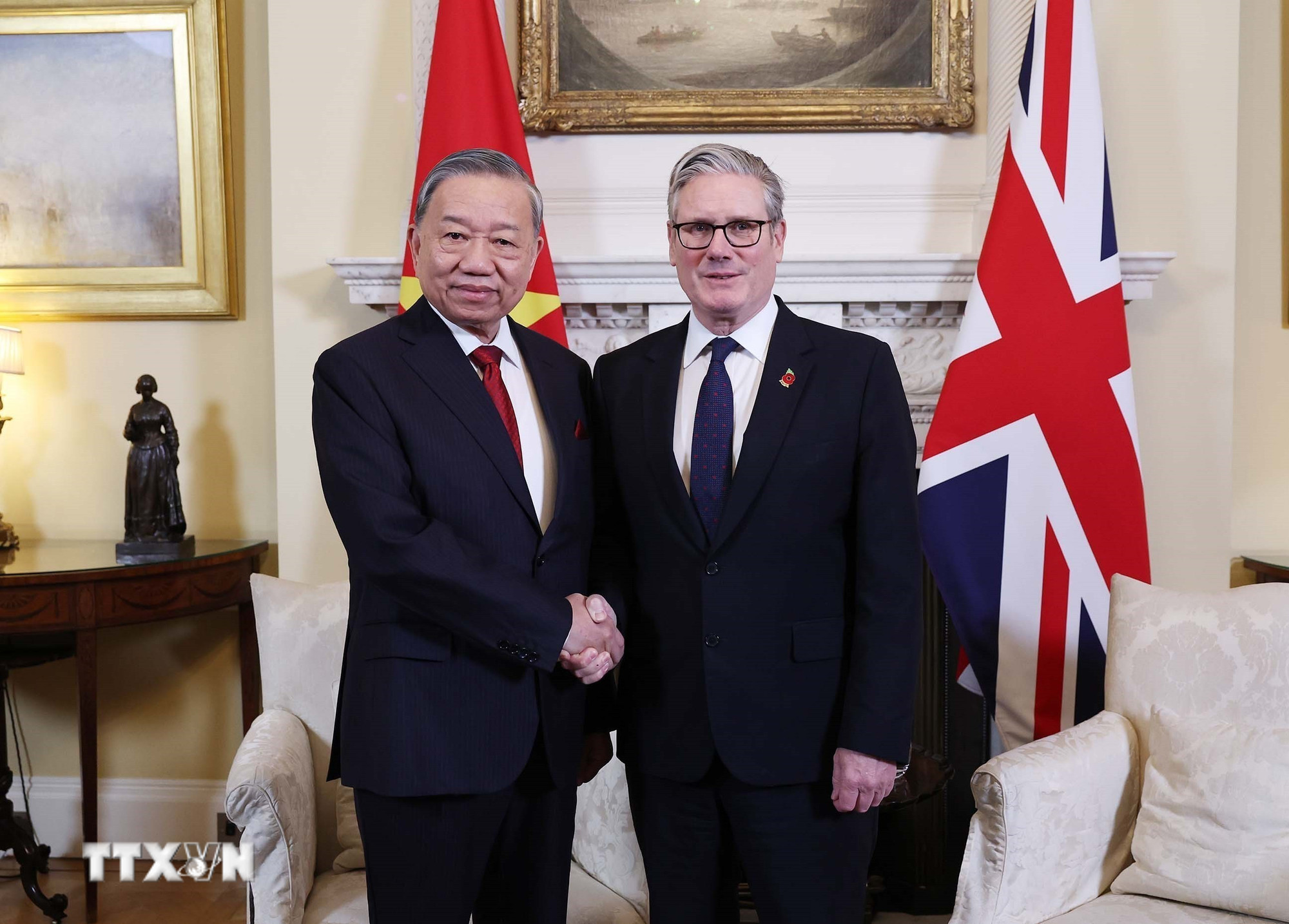
General Secretary To Lam and Prime Minister of the United Kingdom of Great Britain and Northern Ireland Keir Starmer. (Photo: Thong Nhat/VNA)
In the context of the world witnessing profound shifts in geopolitics and power structures, the close connection between development-security-foreign affairs becomes an inevitable requirement.
The draft documents of the 14th Party Congress for the first time proposed putting "foreign affairs and international integration" on par with national defense and security, becoming an "important, regular" task.
This is considered a breakthrough in the Party's strategic thinking, demonstrating a new vision of protecting and developing the country in the period of global integration.
According to Master Phan Xuan Dung - Researcher of the Vietnam Studies Program at the ISEAS-Yusof Ishak Institute (Singapore), a PhD student at the Australian National University, putting foreign affairs on par with national defense and security is not only the right direction but also an urgent requirement for Vietnam to proactively seize opportunities and overcome challenges in the current context, when strategic competition between major countries is increasingly fierce and non-traditional security issues are increasing.
The draft documents of the 14th National Party Congress for the first time propose to put “foreign affairs and international integration” on par with national defense and security, becoming an “important and regular” task. This is considered a breakthrough in the Party’s strategic thinking, demonstrating a new vision of protecting and developing the country in the period of global integration.
He believes that foreign affairs today is no longer just a support tool, but has become the “first line of defense” of the country - helping to prevent war and conflict early and from afar. If national defense and security are the “shield” to protect sovereignty, then foreign affairs are the “spearhead” to pave the way, create a peaceful and stable environment, and at the same time mobilize external resources for national development.
The elevation of foreign relations also reflects Vietnam's increasingly high position in the international arena. With a wide network of comprehensive strategic partnerships, strategic partners and comprehensive partners, and an increasingly active role in multilateral forums such as the Association of Southeast Asian Nations (ASEAN), the United Nations or the Asia-Pacific Economic Cooperation Forum (APEC), Vietnam has transformed itself from a "passive participant" to a responsible member, even a creator in a number of regional and global issues.
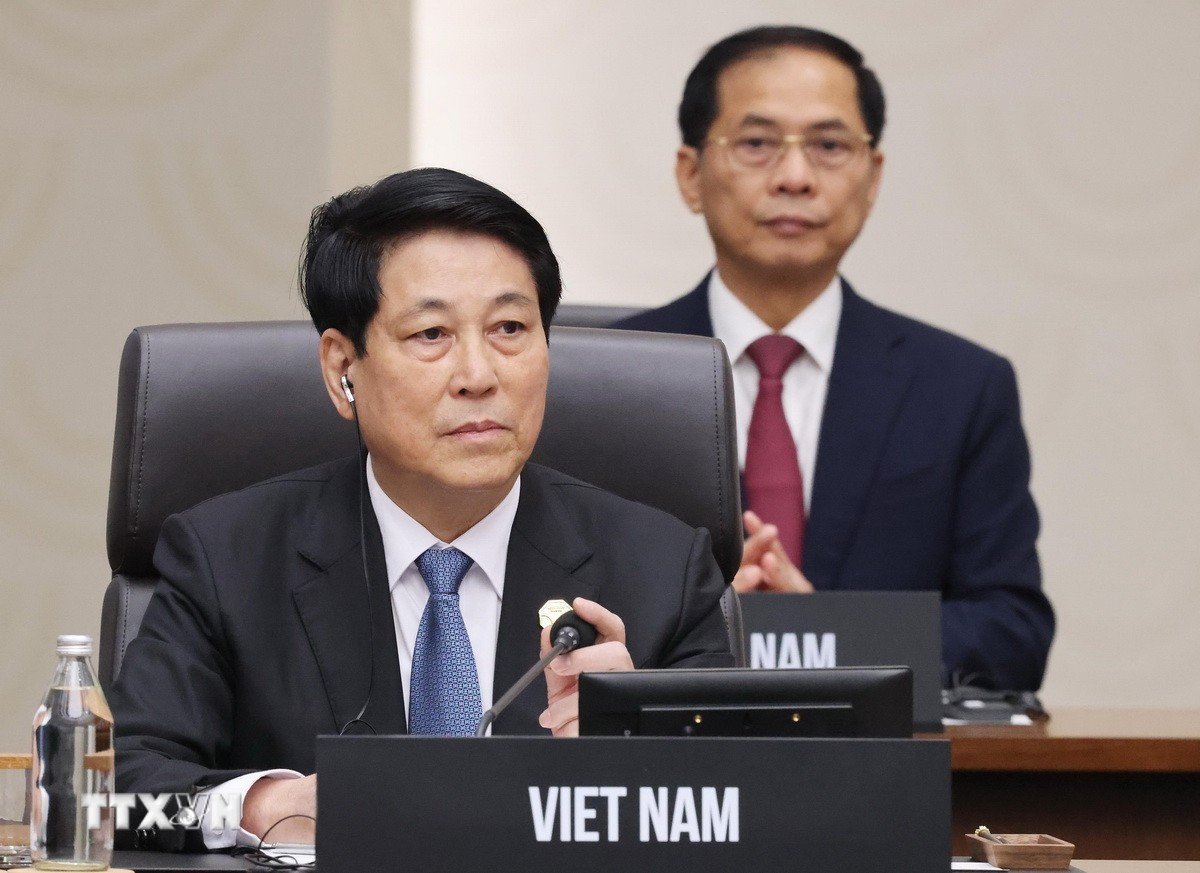
President Luong Cuong attends the 32nd Asia-Pacific Economic Cooperation (APEC) Summit. (Photo: Lam Khanh/VNA)
Expert Phan Xuan Dung emphasized that bringing foreign affairs to the same level as national defense and security is an inevitable adjustment, in line with the country's stature and development aspirations in the new era.
To realize this orientation, expert Phan Xuan Dung recommends that Vietnam needs to invest appropriately in its diplomatic force in three key aspects:
Building a knowledge ecosystem to serve foreign affairs: Countries with strong diplomacy all possess an independent strategic research system, where experts and scholars are encouraged to conduct in-depth research, debate freely and make practical contributions to policy making. Vietnam needs to strengthen the capacity of domestic research institutes and universities, and expand international cooperation in this field.
Updating research methods and content: The Vietnamese research community needs to keep up with new trends in international relations such as digital diplomacy, non-traditional security, geo-economics or the role of non-state actors... to provide accurate and timely advice to leaders.
Adequate investment in resources: Including training a team of professional and modern diplomatic staff; increasing the budget for foreign affairs activities; and at the same time building a mechanism for close coordination between Party foreign affairs, State diplomacy and people's diplomacy.
Regarding the content of promoting industrialization and modernization on the basis of science, technology and innovation, according to Master Phan Xuan Dung, the role of foreign affairs in mobilizing external resources is key.
He explained that the Draft Document of the 14th National Congress was wise in identifying "economic diplomacy" and "technological diplomacy" as the focus of the coming period - demonstrating a new way of thinking about linking diplomacy with development.
Specifically, expert Phan Xuan Dung recommended that Vietnam should make the most of its comprehensive strategic partnership network and strategic partnerships with technologically advanced countries to access, transfer and master modern technology, prioritizing the establishment of in-depth cooperation mechanisms in research and development (R&D), training high-quality human resources and building an innovation ecosystem.
At the same time, it is necessary to promote attracting high-quality foreign investment, not only in terms of capital but more importantly in technology, governance and connection to global value chains.
Economic diplomacy must "lead the way", creating a favorable environment for foreign businesses to consider Vietnam as a strategic destination.
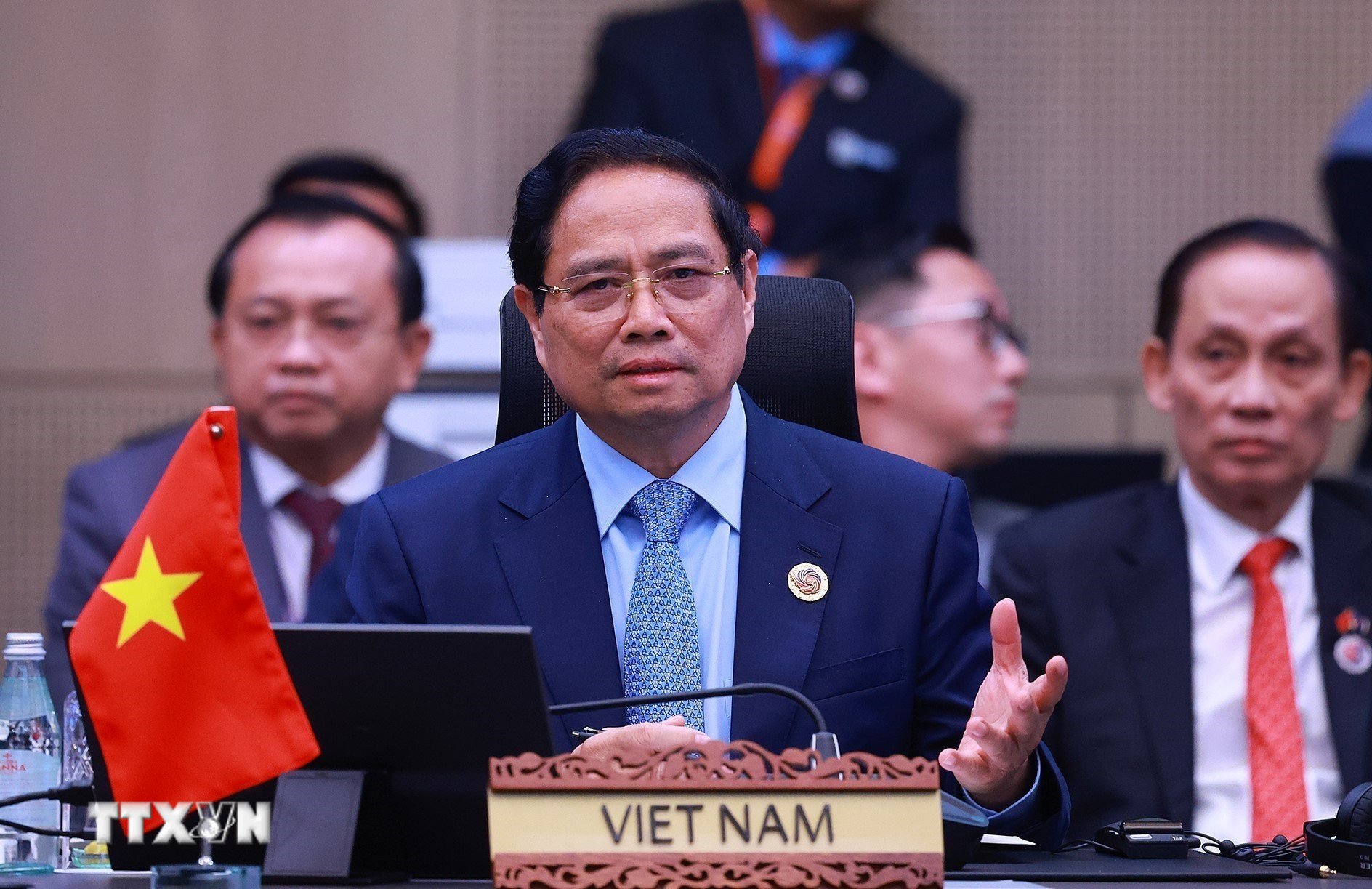
Prime Minister Pham Minh Chinh attends and delivers a speech at the 28th ASEAN-Japan Summit. (Photo: Duong Giang/VNA)
Vietnam also needs to take advantage of its active membership in international organizations such as ASEAN, APEC, and the World Trade Organization (WTO) to access financial, technological, and intellectual resources for development. As the Draft Document emphasizes, Vietnam needs to "maximize internal resources and take advantage of external resources" - that is the way to help Vietnam shorten the technology gap with developed countries.
According to expert Phan Xuan Dung, the Draft Document's mention of the three concepts of "multi-layered-fragmented-strongly divided" demonstrates the Party's sharp recognition of the rapidly and profoundly changing international situation.
“Multi-layered” refers not only to the polarization of great powers, but also to the division of power and influence among states. “Fragmentation” reflects the weakening of traditional global institutions, creating a vacuum that needs to be filled by new, more flexible mechanisms.
Meanwhile, “strong demarcation” shows the tendency for countries to cooperate based on specific interests, instead of ideological blocs as before. In this context, Vietnam’s foreign policy of independence, self-reliance, multilateralization and diversification becomes a strategic advantage.
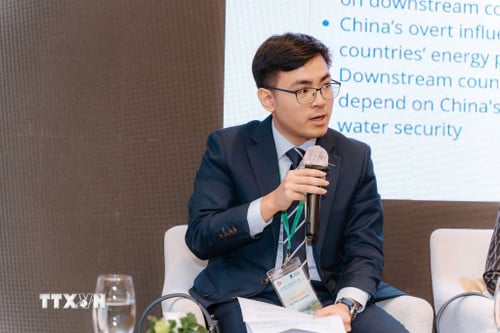
Master Phan Xuan Dung - Researcher of the Vietnam Studies Program at the ISEAS - Yusof Ishak Institute (Singapore), PhD student at the Australian National University. (Source: VNA)
Not being bound to any competitive bloc, Vietnam retains “strategic freedom” to cooperate with all parties based on national interests. This helps Vietnam become a reliable bridge between countries and strategic competitive blocs, thereby enhancing the country’s position in the international arena.
From this bridging position, Vietnam can maximize resources, technology, investment capital and support from many sides to serve socio-economic development, while ensuring national security.
With a network of 14 comprehensive strategic partners including all 5 Permanent Members of the United Nations Security Council (P5) - and an active role in ASEAN, the United Nations, APEC and many other regional forums, Vietnam has enough prestige and capacity to propose new cooperation initiatives, contributing to shaping international standards in areas such as ocean governance, food security, or green transformation.
A clear example is that Vietnam was chosen to host the signing ceremony of the United Nations Convention against Cybercrime in Hanoi - an event that demonstrates the international community's recognition of Vietnam's prestige, position and capacity to contribute to building global legal frameworks and shaping the international order in a proactive and responsible manner./.
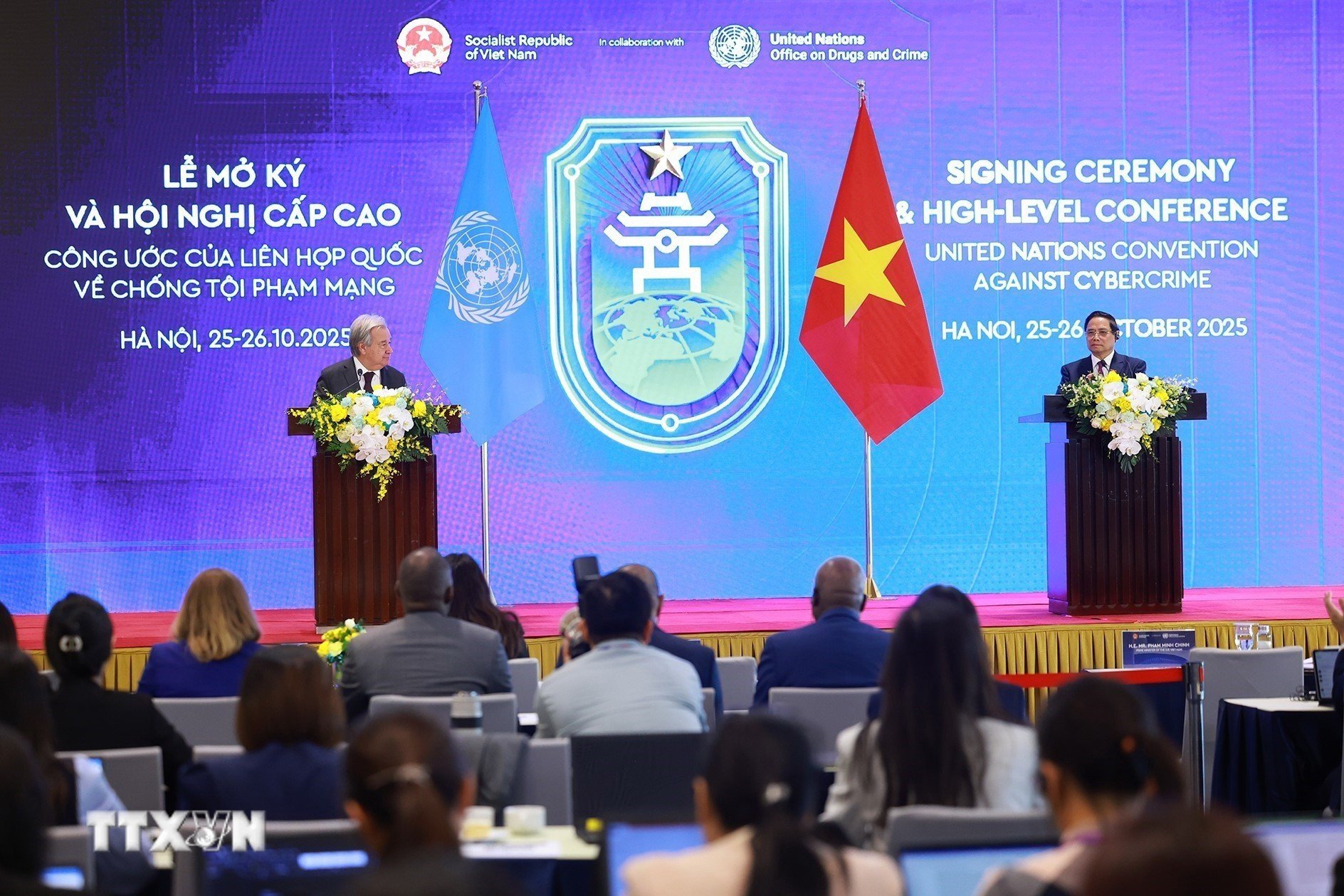
Prime Minister Pham Minh Chinh and UN Secretary-General António Guterres met the press at the signing ceremony and high-level meeting of the UN Convention against Cybercrime. (Photo: Duong Giang/VNA)
(TTXVN/Vietnam+)
Source: https://www.vietnamplus.vn/du-thao-van-kien-dai-hoi-xiv-cua-dang-buoc-dot-pha-trong-tu-duy-ve-doi-ngoai-post1076448.vnp



![[Photo] Prime Minister Pham Minh Chinh attends a conference to review one year of deploying forces to participate in protecting security and order at the grassroots level.](https://vphoto.vietnam.vn/thumb/1200x675/vietnam/resource/IMAGE/2025/11/12/1762957553775_dsc-2379-jpg.webp)

![[Photo] Highways passing through Dong Nai](https://vphoto.vietnam.vn/thumb/1200x675/vietnam/resource/IMAGE/2025/11/12/1762940149627_ndo_br_1-resize-5756-jpg.webp)


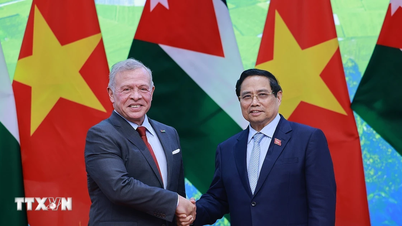
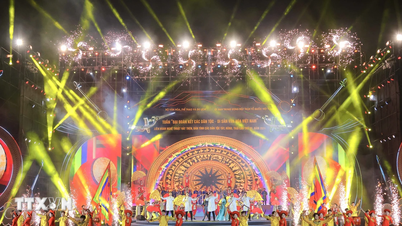
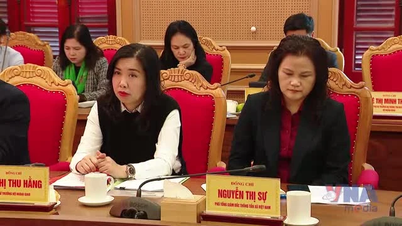
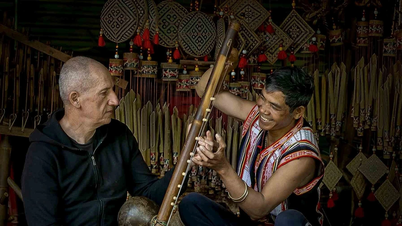




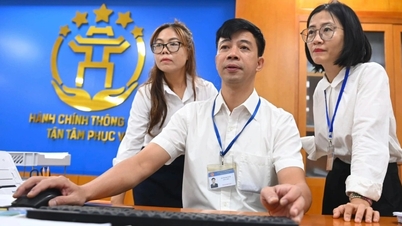


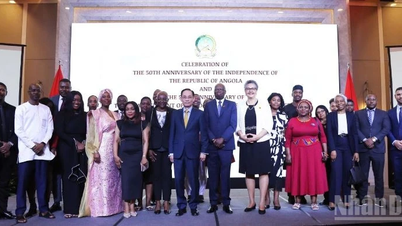









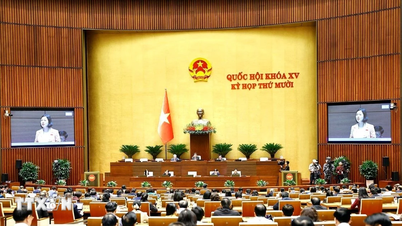
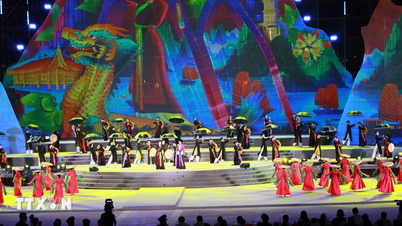
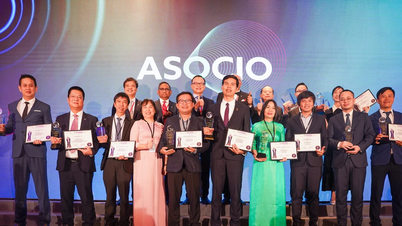

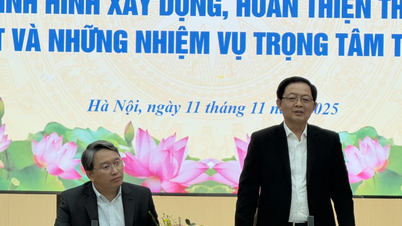
















































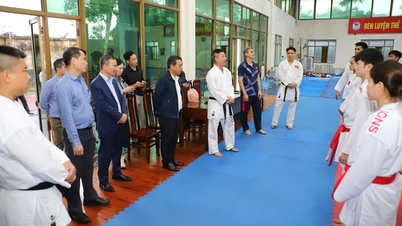

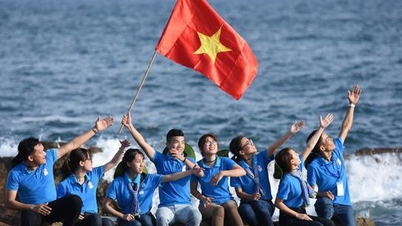




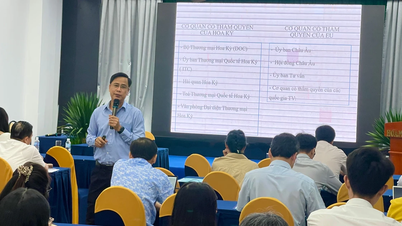
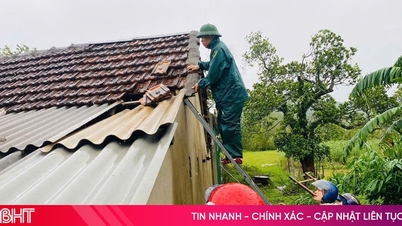



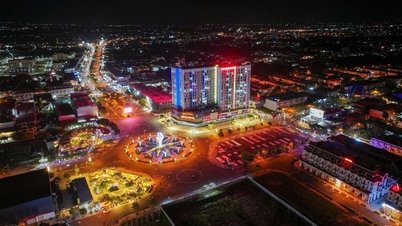
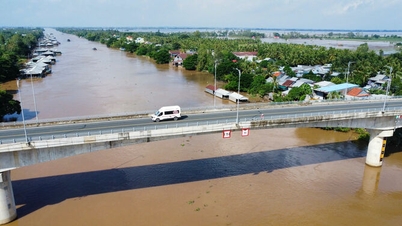






![Dong Nai OCOP transition: [Article 3] Linking tourism with OCOP product consumption](https://vphoto.vietnam.vn/thumb/402x226/vietnam/resource/IMAGE/2025/11/10/1762739199309_1324-2740-7_n-162543_981.jpeg)





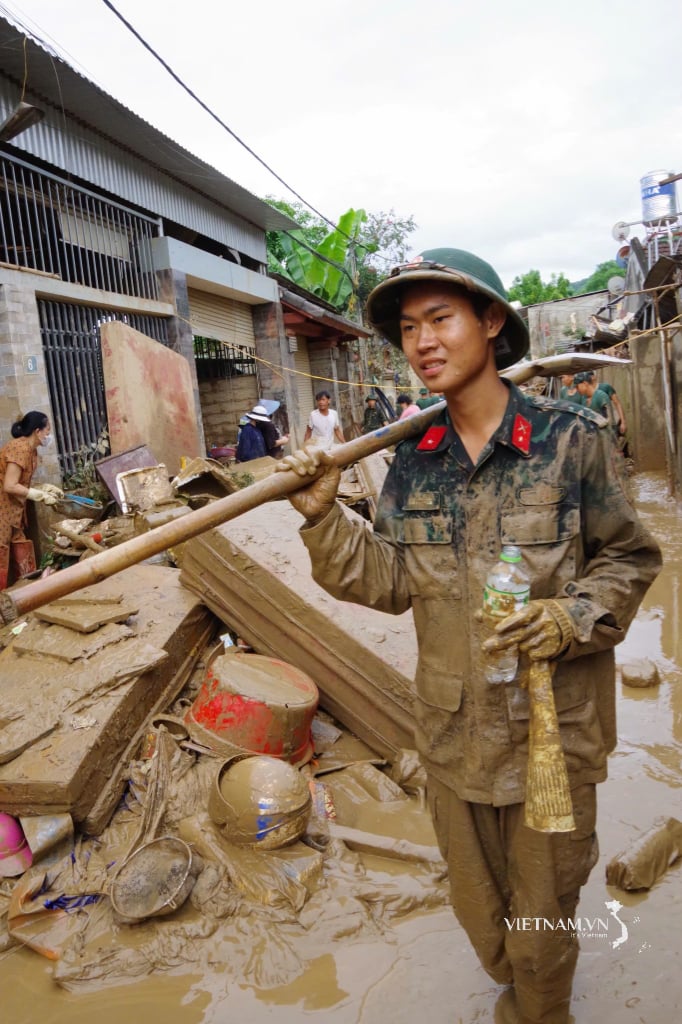

Comment (0)